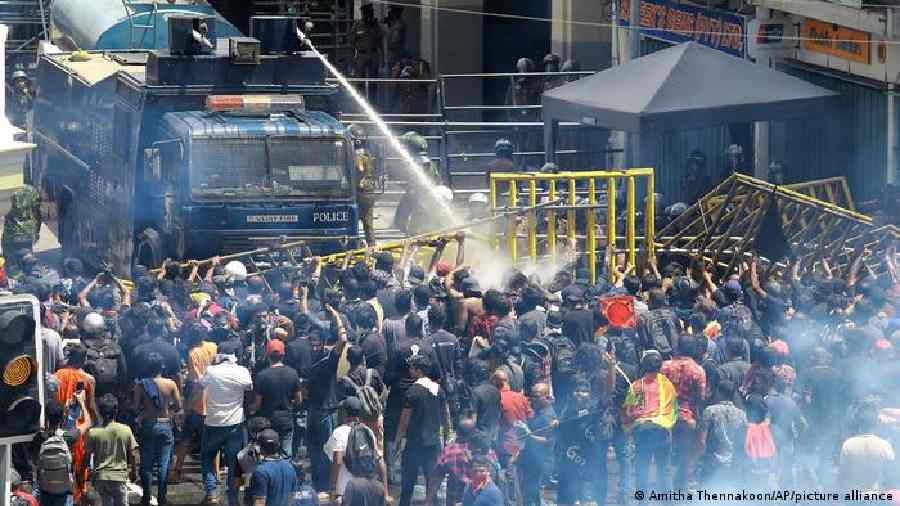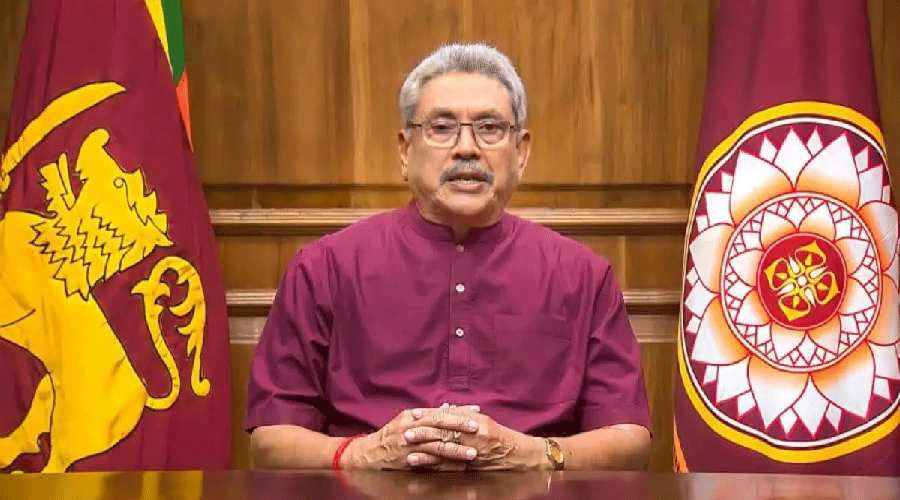Sri Lanka's embattled President Gotabaya Rajapaksa would resign on Wednesday, Parliament Speaker Mahinda Yapa Abeywardena said late Saturday night, hours after thousands of protesters stormed his official residence, blaming him for an unprecedented economic crisis that has brought the country to its knees.
President Rajapaksa informed the Speaker about this decision to quit after Abeywardena wrote to him seeking his resignation following the all-party meeting of leaders held Saturday evening.
The party leaders had demanded the immediate resignation of President Rajapaksa and Prime Minister Ranil Wickremesinghe to make way for Abeywardena to become acting president until Parliament appointed a successor.
Wickremesinghe, 73, has already expressed his willingness to resign. But an angry mob did not spare his private home here and set it on fire.
Rajapaksa, 73, responded to the Speaker's letter, saying he would quit on July 13. Rajapaksa became Sri Lankan President in November 2020.
Earlier, Speaker Abeywardena had asked President Rajapaksa and Prime Minister Wickremesinghe to resign immediately to make way for an all-party government after the country witnessed its biggest protest yet amid an unprecedented economic crisis.
Abeywardena in his letter to Rajapaksa, whose whereabouts are still not known, informed him about the outcome of the party leaders' meeting he had convened this evening after which Wickremesinghe offered to resign and form an all-party government.
He told Rajapaksa that party leaders wanted him and Wickremesinghe to resign immediately, Parliament to be convened in seven days to appoint an acting president, and appoint an interim all-party government under a new Prime Minister commanding majority in Parliament. It was also decided to call for elections within a short period of time and install a new government.
Rajapaksa appears to have gone underground in the face of massive public anger over an unprecedented economic crisis since the country became independent in 1948.
Earlier in the day, thousands of protesters stormed the official residence of President Rajapaksa. It is believed that President Rajapaksa left the house before the massive crowd arrived.
At least 45 people, including seven security personnel, were injured in clashes between security forces and the protesters some of them holding Sri Lankan flags and helmets - who had gathered in large numbers in the Fort area, demanding President Rajapaksa's resignation.
Sri Lanka, a country of 22 million people, is under the grip of an unprecedented economic turmoil, the worst in seven decades, crippled by an acute shortage of foreign exchange that has left it struggling to pay for essential imports of fuel, and other essentials.
The country, with an acute foreign currency crisis that resulted in foreign debt default, had announced in April that it is suspending nearly USD 7 billion foreign debt repayment due for this year out of about USD 25 billion due through 2026.
Sri Lanka's total foreign debt stands at USD 51 billion.












